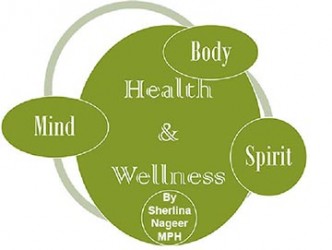This Sunday, many people worldwide are going to be celebrating Mother’s Day.
Mother’s Day as currently known, first started in the United States in 1908, although other, informal celebrations of motherhood and fertility were observed in other countries and cultures in earlier times.

I have written in previous columns and on other fora (see here: https://freedombyanymeans.wordpress.com/) about the need for more education about sexual and reproductive health, for young people especially, as well as for safe abortions for those woman and girls who become pregnant when they are not ready to become mothers. Worldwide, up to 40% of all pregnancies are unplanned, according to data from the Guttmacher Institute. Additional research reveals that only 40% of the Guyanese population uses contraception. Accurate and comprehensive education about birth control, family planning, and access to contraception needs to be more widely available, in schools as well as public health facilities. Safe and affordable abortions also need to be available at all public hospitals nationwide. Twenty years after the passage of the Medical Termination of Pregnancy Act, Guyanese women, most of whom are already mothers, are still being injured and killed by unlicensed people conducting procedures they are not trained to perform.
We also need to be doing a lot more to prevent rape and sexual abuse, particularly of children, too many of whom are experiencing this trauma (and more when they become pregnant against their will). Data from the 2008/2009 national Guyana Biological Behavioral Surveillance Survey shows that almost a quarter of children surveyed (24%) had been forced to have sex. Rape is damaging enough to the psyche, without the additional burden of forced motherhood, especially when one is still a child, still developing physically and mentally, and without the ability to properly care and provide for another. Too early childbearing can have serious, long-term, negative effects on one’s physical and mental health.
Childrearing is not to be taken lightly; indeed it is the bedrock of a healthy society. Our experiences as children, and behaviours developed in childhood affect us into adulthood, in numerous ways. Every child deserves to be wanted and cherished. Not every pregnancy must be carried to term every time. Also, it is not every woman’s destiny to bear children and it does not mean that a woman is bad, less of a woman, or selfish if she chooses not to have children, or to terminate a pregnancy. We can and should celebrate mothers and motherhood while simultaneously respecting and protecting women’s rights and choices.
None of this is really the subject of this column though. No, what I actually want to talk about is the other mother we all have who doesn’t get the level of attention that is shown the ones who bear and raise us. That other, oft-ignored mother is La Pachamama, known as the Earth Mother in Incan mythology. One does not have to subscribe to Incan mythology to love and acknowledge La Pachamama – the fact that no living thing can survive without clean air, water, and soil should be enough.
But sometimes it is the simplest and clearest facts that our brains seem to skip over in the modern-day hype. The fact is that most of the power and wealth that humans have amassed have come as a result of exploiting the natural resources of the Earth. It is also a fact that when we destroy and pollute the environment as we have done in our insane quest for money and power, we are, ultimately, driving the nails into our own coffins.
When we pour chemicals in the rivers, creeks, and oceans, poisoning the fish and other aquatic life, when we suck into our lungs the toxins our vehicles and factories belch into the air, when we dig up the land, divert the waterways, butcher other species to the point of extinction for sport, consumption, or some other inane reason – we are disrupting in fundamentally dangerous ways the natural order and balance that has kept life on Earth going for millennia. In the web of life, everything is connected (even if the relationships may not be obvious), and when one part of the network is affected, eventually the entirety will feel pain. Climate change due to human activity is now an undisputable fact, unchallenged by most reputable scientists, with effects clearly obvious to most. The fact is that many of the chemicals we have created with our big brains are dangerous, carcinogenic, and end up contaminating the soil in which we grow our food, the water we drink, and the air we breathe.
Yes, there is resilience and adaptation in nature—that’s essential to survival after all—but that takes time and disastrous man-made change is much quicker. The fact also is that women and children on the lower end of the socioeconomic scale (aka poor people) are the hardest hit by environmental disasters. When there is drought, flood, destruction of crops and clean water sources, women—as the #1 caregivers—are affected. When there is displacement and disintegration of communities and infrastructure due to ‘natural disasters’, women are at increased risk for sexual and other violence.
So this Mother’s Day, spare a thought for La Pachamama and pledge to do all you can to make every day Mother’s Day (and Earth Day) for real. Resist overconsumption; simply spending quality time with your mother is worth much more, in the short as well as long term.
Sherlina can be contacted at ssnageer@yahoo.com.





